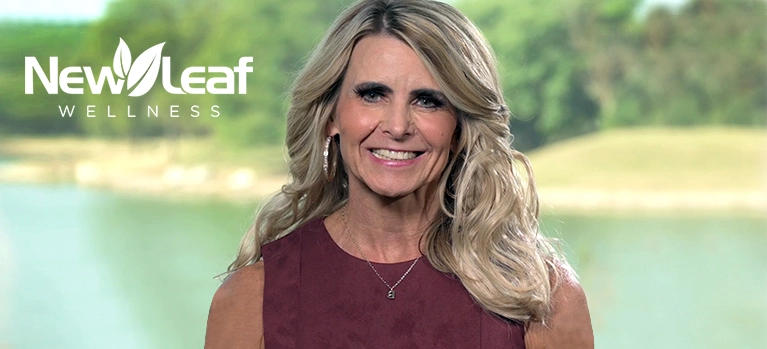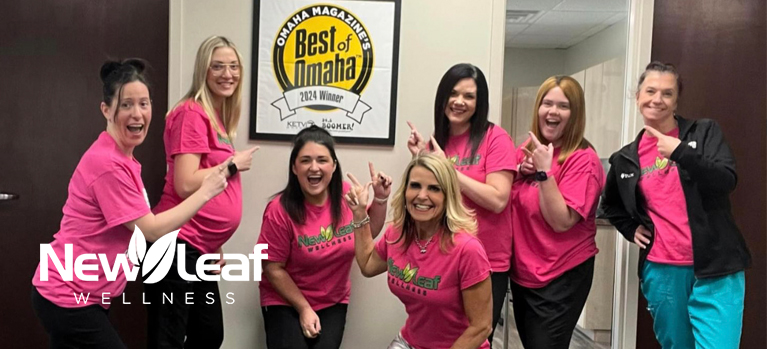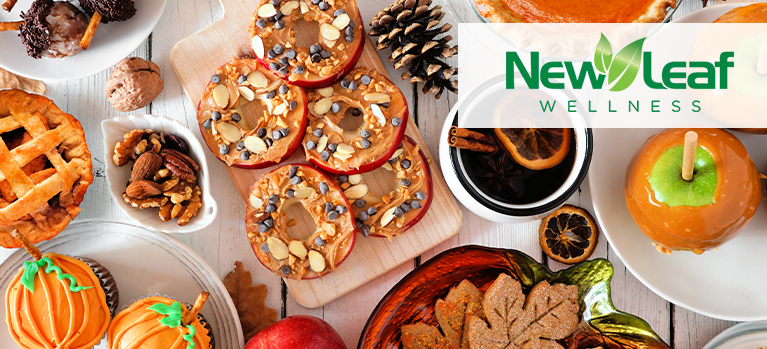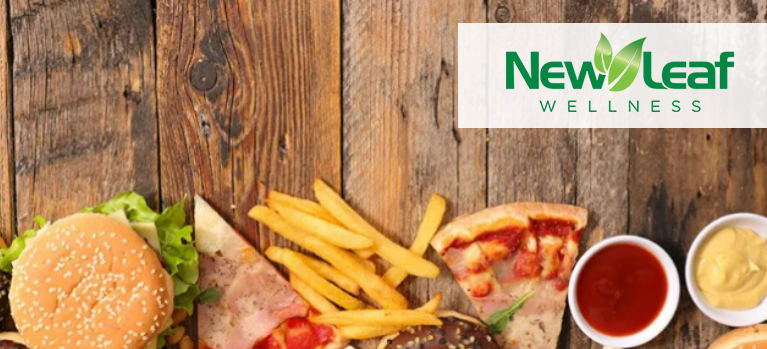Feel, Look, and Live Your BEST!
Tag: #meltbellyfat
Low-T and Food Sensitivity
Feel, Look, and Live Your BEST!
Hormone Replacement Therapy with Katheryn Foxx
Feel, Look, and Live Your BEST!
Continue reading “Hormone Replacement Therapy with Katheryn Foxx”
Transform Your Skin
Feel, Look, and Live Your BEST!
Complimentary Consutation
Feel, Look, and Live Your BEST!
Best of Omaha 2024 Winner
CONGRATULATIONS! New Leaf Omaha for winning
Best of Omaha 2024!
Shoutout to our New Leaf Wellness, Omaha clinic for winning Best of Omaha 2024! We are so proud of your dedication to health and wellness. Keep up the amazing work! Celebrating 2 years serving Omaha, NE and winning Best of Omaha 2 years in a row!
New Leaf Wellness’s mission is to help patients make healthy changes to impact their overall health and wellness. New Leaf Wellness in Omaha can help show you how to keep your health goals on track!
#BestOfOmaha2024 #NewleafWellness #HealthAndWellness #Congrats
Click to learn more about our Omaha Clinic
READ MORE »
menopause, Tictoc, BioTe
How To Avoid the Holiday Weight Gain
On Thanksgiving day and the ten days after Christmas, Americans will gain the most weight of the year. This time is when many people let their fitness routine and healthy eating slide away. It is easy to understand why. The abundance of holiday food, parties, and family gatherings, can make excuses easy. If you stay on track 90 percent of the time, that favorite small dessert will not hurt you. You can avoid holiday weight gain with careful planning and the right attitude.
I have some tips to help you get through and still enjoy the holidays without blowing your health and wellness plan.
- When planning a special meal for the holiday or weekend, plan for it and enjoy it. Make sure you stay on track the days preceding and following it. Do not sweat it when you are having a bad day. Start over the next day. Do not let the bad day get you down. The next day, get right back on it and stay positive.
- Use an app such as My Fitness Pal or even write your food intake down on paper. If you do not know how much you are eating, you can lose track of the foods you have eaten. People that record their food are much more successful in losing weight and staying on track because we usually underestimate how much we eat and overestimate how much we exercise. It helps to track that you are getting enough protein, fat, and carbs. Recording food can keep you accountable and allow you to see what does and does not work for you.
- Prioritize your protein intake. Protein keeps you full longer, reduces hunger, and helps your metabolism and appetite-reducing hormones. Keeping your muscle is very important for long-term success and requires protein.
- Drink more water. Then you will not be as hungry and tempted to overindulge. Water intake will also help boost your metabolism by helping you burn fat, keep you hydrated for workouts and help remove waste from the body.
- Be a social butterfly when at holiday parties. Instead of just enjoying the food, enjoy the company. Focus on other things besides the food. Walk around and talk to people, and position yourself away from the buffet so you do not see it. If food is in front of you, you may want another bite and keep eating. Remember, there is more to the holidays than just eating.
- Drinking alcohol can make it difficult to lose weight. Most alcoholic drinks have high calories and contain sugar that will increase your blood glucose and make you have more sugar cravings on the blood sugar rollercoaster. Estrogen metabolism can also be affected as your body recognizes alcohol as a toxin.
- Offer to bring a healthy dish to the party. Bring a veggie or meat tray to help resist temptation.
- After eating dinner, go for a family walk. A 2-5 minute walk can reduce blood sugar and insulin levels. After eating, blood sugar levels can spike, and insulin produced to control them can lead to diabetes and heart issues.
- Dress up and keep the stretchy-waisted pants at home. Baggy pants allow you to overeat, so wear some skinny jeans or something more tight-fitting to show off those curves. You will not be as inclined to go for second or third servings.
- Make positive decisions in the buffet line. Grab a small plate instead of the bigger one. Wait at least 20 minutes and have a big glass of water later before you go back for seconds. You may be less hungry than you think. Take smaller bites as you are eating. Nibble when you eat. Be mindful and enjoy each bite. Savor the taste of it and enjoy each bite and still avoid the holiday weight gain.
- Sleep as much as you can. Lack of sleep is one of the leading causes of holiday weight gain. Sleep deprivation can lead to stress and high cortisol levels, decreased glucose tolerance, dysregulated appetite hormones, and poor food decisions. Seven to eight hours of sleep a night is what you should be getting. High cortisol from lack of sleep can lead to belly fat. You make worse decisions about what to eat when tired.
- Don’t let the holidays stress you out. Find healthy ways to manage stress by walking, meditating, stretching, doing hobbies, or calling a friend.
- Enjoy the time with your family and friends. Enjoy food in moderation. This time of the year is meant to be enjoyed. Be easy on yourself. You will get back on track the next day after indulging in holiday festivities!
New Leaf Wellness’s mission is to help patients make healthy changes to impact their overall health and wellness. It is about taking baby steps, staying positive, and building a healthy lifestyle. We can help you avoid that holiday weight gain. New Leaf Wellness in Omaha can help show you how to keep your health goals on track!
menopause, Tictoc, BioTe
Food Sensitivity Testing
Watch this video to learn more about Food Sensitivity Testing.
Wellness Coaching
Just as a sports coach can help an athlete develop and excel at a sport, Wellness Coaching can help anyone excel at living their life, even if they have chronic medical conditions.
The coaching process is similar to talk therapy in that it involves two people discussing ideas and issues. The process is different in that the person, who is being coached, is in the driver’s seat, creating their goals as well as the strategies on how to arrive at their goals.
What Does a health coach do?
People tend to hire Wellness Coaches to help them with health issues, such as weight loss, stress reduction, chronic condition management, improving diet and exercise, addiction, and adjusting to a life-altering health event, like a heart attack. There is an overlap between what a Wellness Coach and what a life coach does. A life coach’s domain is much broader, includes career issues, executive coaching, and professional effectiveness.
Unlike health fads that come and go, wellness coaching has strong evidence behind it backing its effectiveness for improving health and well-being. At New Leaf Wellness, a Wellness Coach promotes happiness, builds resilience, saves money, and helps people live longer and more fulfilling lives.
In conclusion, take control of your health and the health of your employees with help from your dedicated Wellness Coach wherever you are via Zoom. Save yourself from High Healthcare costs. Sign up for our online or in-person consultation services and receive personal attention! FREE 20-minute First session!
Health Coaching can help with :
- Weight loss
- Stress reduction
- The management of chronic conditions
- Improving diet and exercise
- Preventive care and wellness
- Illnesses and injuries prevention education
- Disease management
- Multi-Cultural Workplace Wellness
- And so much more!
Are you tired or feeling sluggish? Has your get up and GO… GONE? Call New Leaf Wellness and schedule a FREE 20-minute session with a Wellness Coach.
menopause, Tictoc, BioTe
Avoiding Ultra-Process Foods
WHAT ARE ULTRA-PROCESSED FOODS?
Many people suggest we avoid ultra-processed food and choose whole foods instead. What are ultra-processed foods? According to Harvard Health, food processing often involves adding ingredients like sugar, salt, fat, artificial colors, preservatives, flavors, and/or stabilizers, so these processed products are “made mostly from substances extracted from foods, such as fats, starches, added sugars, and hydrogenated fats.” In other words, it feels like a bit of a stretch to call them food in the first place.
AMERICAN DIET
Unfortunately, the typical American diet (and grocery store) is chock-full of these products, from cookies and crackers to frozen meals and sugar-packed sodas.
One 2022 report noted that a whopping 73% of the U.S. food supply can be considered ultra-processed—partially because these “Frankenfoods” are much more profitable for manufacturers, costing on average 52% less than minimally processed options. However, for the humans consuming them, they have many impacts that are far from positive—in fact, they’re downright health-destroying. Let’s look at just some of the ways in which they harm the entire human body, over both the short and long term.
EATING HIGHLY PROCESS FOODS CAN BE ADDICTIVE
One study, published in late 2022 in the journal Addiction, evaluated these foods according to the criteria established when researchers examined the impacts of tobacco in the 1980s. The findings noted that these addictive hallmarks include:
- Loss of control over intake, such as seen with compulsive or binge eating
- Intense cravings, or strong urges that are difficult to resist
- Inability to reduce consumption—for example, eating even when not hungry
- Continued use despite negative consequences, including serious health concerns like obesity
The study estimated that roughly 14% of adults and 12% of children exhibit signs of food addiction.
EATING HIGHLY PROCESS FOODS MAY INCREASE THE RISK FOR COGNITIVE DECLINE
We already know that high-glycemic, low-fiber foods and other nutritionally empty culprits, are potential memory destroyers. More specifically, a study presented at the 2022 Alzheimer’s Association International Conference, published in JAMA Neurology and reported by CNN, stated that consuming more than 20% of the daily calorie intake (that is, 400 calories of a 2,000-calorie diet) via ultra-processed foods may increase the risk for cognitive decline. This decline occurred at a rate of 28% faster among men and women who consumed large amounts of these foods, and they also experienced a 25% faster decline in executive function. Unfortunately, many Americans consume far more than 20% of their daily calories in ultra-processed foods, with one 2017 study reporting that number at 57.5% among its survey participants.
HIGHLY PROCESSED FOODS BOOST THE ODDS OF EXPERIENCING MENTAL HEALTH ISSUES
A 2022 review of 17 studies researched the links between processed foods and mental health disorders. The findings stated that “greater ultra-processed food consumption was cross-sectionally associated with increased odds of depressive and anxiety symptoms” and “was associated with increased risk of subsequent depression.” Correspondingly, another study from 2020 found that participants whose ultra-processed food intake made up more than 73% of their total energy intake had a 35% higher risk of depressive symptoms, compared with those who consumed 34% or less of their total calories from ultra-processed foods. Clearly, there is a reason why the Standard American Diet spells SAD!
EATING ULTRA-PROCESSED FOODS HAS BEEN LINKED TO INCREASED PHYSICAL HEALTH RISKS
In 2019, two large European studies were published in The BMJ. These studies established a positive association between eating highly processed foods and the risk of cardiovascular disease and even death. The first study, from NutriNet-Santé, surveyed 105,159 French adults (79% of whom were female, with an average age of 43 years). The conclusion was that a “10% increase in the proportion of ultra-processed food in the diet was associated with significantly higher rates of cardiovascular disease, coronary heart disease, and cerebrovascular disease (an increase of 12%, 13%, and 11%, respectively).” Meanwhile, a diet higher in unprocessed or minimally processed foods is correlated with a lower risk of all these health issues.
The second study investigated the link between eating ultra-processed foods and the risk of death from any cause. Like the first study, it surveyed participants over 10 years. The BMJ results demonstrated that “higher consumption of ultra-processed foods (more than 4 servings per day) was associated with a 62% increased risk of all-cause mortality compared with lower consumption (less than 2 servings per day). Each additional daily serving of ultra-processed food is correlated with an 18% relative mortality risk increase. These two studies point to possible links between Frankenfoods and poorer quality of life. More research is needed to establish cause and effect.
WHICH ULTRA-PROCESSED FOODS ARE THE WORST?
Though eating anything that fits into the ultra-processed or highly processed categories interferes with optimal full-body health, researchers have hypothesized that certain foods are more likely to trigger addictive-like behaviors. For example, a pair of studies from 2015 compared the making of these toxic food products to the processing that transforms a coca leaf into cocaine—in other words, both have been altered to speed up absorption into the bloodstream.
Ultra-processed foods have large glycemic loads. Glycemic load relates to the food’s dosage of refined carbohydrates and the resulting blood sugar spike. A 2018 study noted that carbs with a high glycemic index “elicit a rapid shift in blood glucose and insulin levels, akin to the pharmacokinetics of addictive substances.” Like with other commonly abused drugs, glucose and insulin levels influence dopamine concentration, so sugar creates cravings and addiction. Accordingly, the these studies referenced above pointed to high-glycemic-load foods as the worst offenders.
15 ULTRA-PROCESSED FOODS TO AVOID
Some of the worse ultra-processed foods that you should nix from your diet include the following 15 nutritional disasters:
- Processed meats (sausages, hot dogs, and deli meats)
- Sugary breakfast cereals
- Sodas and energy drinks
- Frozen pizzas
- Mashed potato flakes
- Packaged cookies
- Blended coffee drinks and flavored creamers
- French fries
- Pretzels
- Baked goods
- Candy
- Instant noodles
- Flavored chips and cheese puffs
- Processed cheese sticks
- Barbecue sauce
FINDING THE BEST OPTIONS AMONG PROCESSED FOODS
Researchers at Northeastern University have created an online tool that rates foods. This online tool rates foods within the same product category on a scale from 1-100 from least processed to ultra-processed. For example, in the “Spread & Squeeze” category, Whole Foods’ 365 brand almond butter scores 5/100 while the same brand of “Cookie Butter” spread is rated at 77/100. This tool can help us make better food choices.
Whole foods, of course, may contain sugar (like you’d find in fruit). Whole foods also contain fiber, protein, and water, making it slower to hit the bloodstream and do not cause that same feeling of a sugar rush. Stick to unprocessed or minimally processed foods in the produce section, such as nuts or legumes. Unprocessed foods promote maximum health and longevity over the long haul.
Finally, for more help in taking control of your health, New Leaf Wellness has a dedicated Wellness Coach. Join wherever you are via Zoom & save yourself from High Healthcare costs. Sign up for our online or in-person consultation services and receive personal attention! FREE 20-minute First session!
WELLNESS COACHING CAN HELP WITH:
- Weight loss
- Stress reduction
- The management of chronic conditions
- Improving diet and exercise
- Preventive care and wellness
- Illnesses and injuries prevention education
- Disease management
- Multi-cultural Workplace Wellness
- And so much more!
Are you tired…feeling sluggish? Has your get up and GO …. GONE?
Contact New Leaf Wellness and schedule a FREE 20-minute session with a Wellness Coach by emailing healthcoach@newleafcenters.com.


















